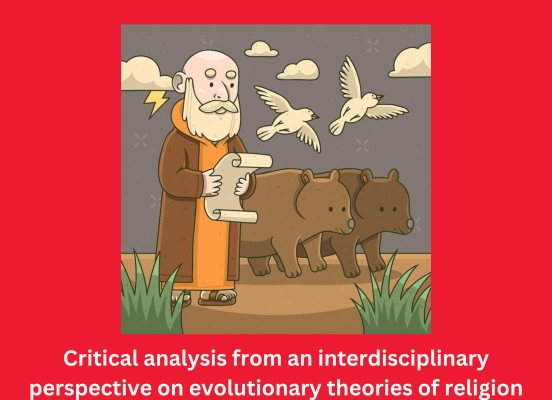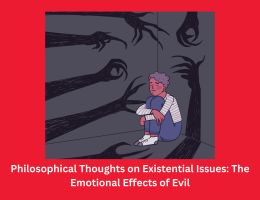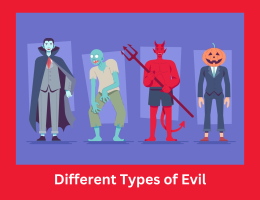
Critical analysis from an interdisciplinary perspective on evolutionary theories of religion
- By admin --
- Sunday, 07 Apr, 2024
Abstract
Every known civilization on Earth practices some form of religion. But religion is a large term that often refers to a selection of factors, consisting of social customs, mythologies, norms and policies touching on moral conduct, rituals, and notion within the paranormal (consisting of gods, spirits, or souls). Many biologists and cultural evolutionists have argued that faith requires a preferred evolutionary explanation due to how normal it is. But the bulk of theories that have been placed out have either considered faith as a unmarried, all-inclusive thing or have handiest concentrated on one or a small variety of its facets. Instead, we advocate doing a radical evaluation of these proposed evolutionary causes with the precise purpose of combining counseled motives with non secular elements to provide a extra whole photograph of causality and the methods in which religion and human cognition have evolved collectively and been impacted with the aid of one another. Additionally, we suggest summarizing the predictions and hypotheses that result from every clarification, in particular indicating how every can be assessed and positioned to the check. Importantly, numerous explanations may additionally apply to several factors of faith, and distinct components of faith may additionally have one-of-a-kind causes. The cautioned explanations might be compiled into a precis book and some of scholarly papers with a subject recognition. Our mixed know-how in religion studies and evolutionary concept offers us a special hazard to evaluate those issues from each a natural and a humanistic angle.
Goals and objectives
When used in educational and non-academic contexts, the time period faith refers to a wide variety of common cultural phenomena. Why inquiries approximately spiritual practices and ideals used to be mysteries (we did now not even realize a way to continue) and at the moment are becoming troubles (we've some idea of a possible solution), according to anthropologist Pascal Boyer's 2001 assertion. Boyer went directly to list the medical disciplines wherein answers may be found: anthropology, cognitive technology, linguistics, and, most crucially for our reason, organic and cultural evolution. Recent research have positioned forth a number of evolutionary reasons for diverse aspects of religion; occasionally, these reasons relate to the same phenomenon, and different instances, they relate to many awesome phenomena. This task's aim is to execute a thorough vital evaluation and evaluation of this fast developing topic, along with a summary of predictions and hypotheses and statistics on how every can be or has been tested and assessed.
Significance
Early scholarly research on religions become in large part stimulated by using evolutionary theory, which held that humanity, or rather civilizations, evolve from one degree to the next. Everyone's leading conceptions, every branch of our know-how, passes successively through three different theoretical situations: the Theological or fictitious; the Metaphysical or summary; and the Scientific or high quality, postulated Auguste Comte in his early work. (Comte, 1853). Regardless of how special their origins and current locations may be, races in a comparable kingdom of mental development have very similar religious principles, consistent with a subsequent argument by way of John Lubbock. According to Lubock (1882), there are six levels in the evolution of religion: anthropomorphism, fetishism, totemism, shamanism, moral monotheism, and atheism. According to Herbert Spencer, The origins of gods can be traced to early encounters with ghosts who were recognized as valiant ancestors from the beyond. According to Spencer (1885), the hero god became the first sort of deity to be worshipped, and all different religions evolved from this foundational religious experience. These thoughts served as the inspiration for among the early anthropological causes of non secular occurrences, such as those supplied by means of Edward Tylor (1871) and James Frazer (1890).
Stage wondering sooner or later misplaced want as it was perceived as an ethnocentric, if no longer downright racist, standpoint that claimed that science or Protestant Christianity become the end product of a process that turned into steadily becoming more civilized. Other theories that emphasize the social position of spiritual phenomena instead of their origins, or viewpoints that completely reject attempts at explanation and refuse to reduce spiritual phenomena to social or psychological elements, took its vicinity. This latter perspective holds that faith need to be investigated as a phenomena sui generis. Rather than seeking to give an explanation for religious occurrences, the researcher's goal become to signify and analyze them.
Collaboration
The above-described first results of the collaborators' brainstorming session are based on their separate earlier investigations. One book and 7 co-authored peer-reviewed articles, consisting of works on the improvement of language, democracy, and cultural evolution in preferred, are the products of Lindenfors' paintings on cultural evolution. In the e book Samarbete, he offers an evolutionary precis of the research on collaboration. For the beyond three years, Svensson has focused on the use of theories from the cognitive technology of faith to investigate content related to Islam. In relation to this paintings, he has already published three peer-reviewed guides, and 3 greater were approved for guide. He is now completing on a work that applies theories of cultural improvement and human cognition to historical and contemporary Muslim perspectives on the prophet Muhammad and the way they relate to societal shape and conduct.
Time body
The undertaking's output will be launched in some of formats. Co-writing articles for overseas guides is one. These pieces will cognizance on a single phenomena at a time, mirroring the above-described fractionalizing approach to religion. The ultimate intention is to coauthor a Swedish monograph with the intention to introduce the subject of evolutionary causes for faith to the place's academic community, in which it's far presently nonexistent. Both academics routinely disseminate their findings in codecs and media that the general public can get admission to, and they may be both engaged participants in the public discourse of these days. This is a continuous pastime that contributes to the overall assignment.





